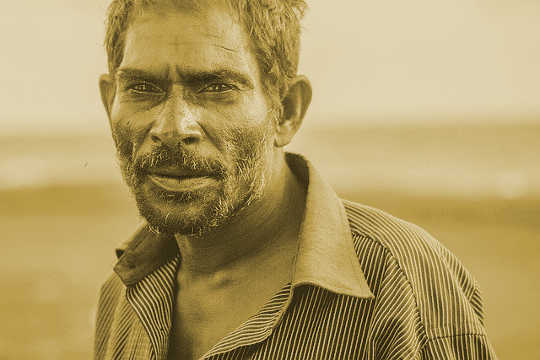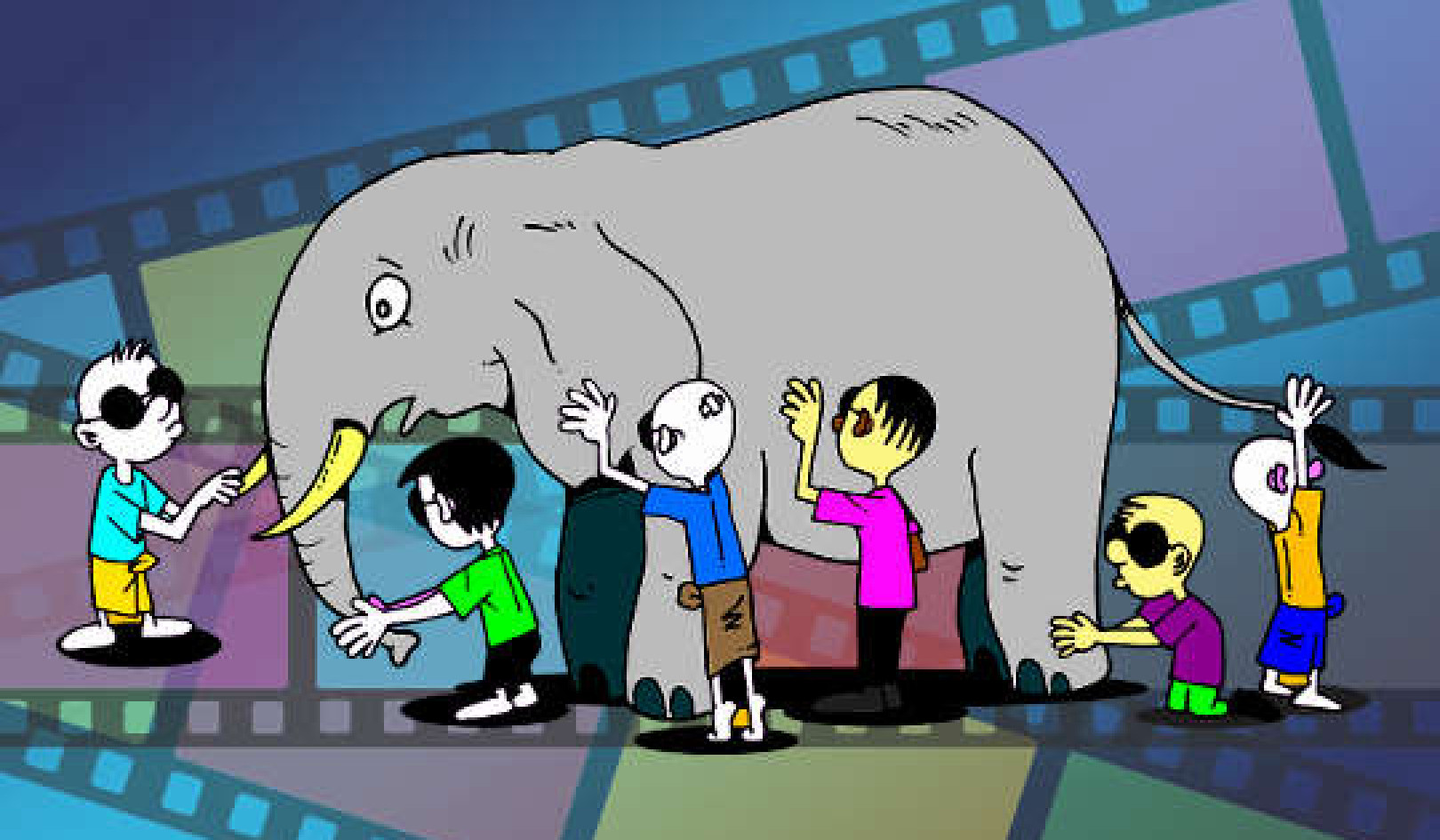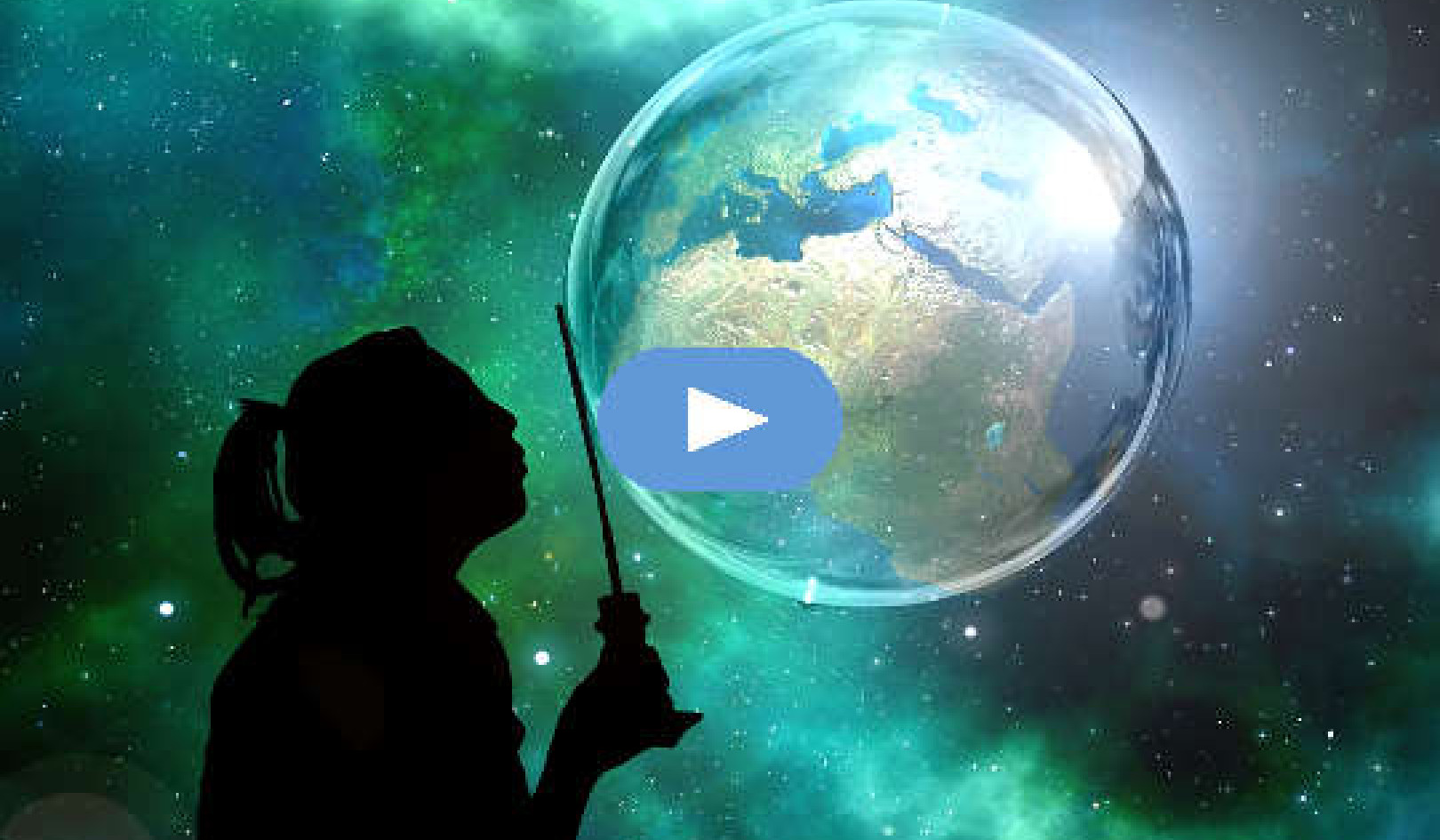
圖片由 維達夏納·拉特納亞卡
如果您想讓別人快樂,請練習同情心。
如果您想快樂,請練習同情心。
- 達賴喇嘛, 冥想的治療能力
The most difficult act of bravery is often kindness.最勇敢的行為往往是善良。 A veteran career firefighter and I were walking out of the gym.一位經驗豐富的職業消防員,我正走出體育館。 As we turned to go to our cars, we noticed a man on the ground, apparently drunk, lying against the curb in the parking lot.當我們轉身去開車時,我們注意到一個地上的人,顯然是喝醉了,躺在停車場的路邊。 It was one of those city locations where drunks and the homeless congregate.那是醉酒和無家可歸者聚集的城市之一。 He had tangled, long dark hair and a beard with a touch of gray.他糾結著長長的黑髮,留著淡淡的灰色鬍鬚。 He was dressed in old jeans, tennis shoes, and a jacket, with a thin blanket around his shoulders.他穿著舊牛仔褲,網球鞋和夾克,肩膀上蓋著一條薄毯。
“老兄,”他用一種非判斷性的,溫柔的聲音說。 “如果你在這裡睡覺,你會受傷的。” He helped the man to his feet, and the man continued on his way.他幫助那個男人站起來,那個男人繼續前進。
In his career, my friend had encountered hundreds of drunks.在他的職業生涯中,我的朋友曾遇到過數百次醉酒。 I would not have been surprised if he had just rolled his eyes, his compassion withered.如果他只是翻了個白眼,同情心枯萎了,我不會感到驚訝。 But he didn't;但是他沒有; he was kind and compassionate.他善良而富有同情心。
這就是實踐:小小的善舉。
There are a hundred reasons not to help a stranger passed out in a parking lot.有一百個理由不幫助陌生人在停車場昏倒。 It's potentially dangerous.有潛在的危險。 The person might be “crazy,” have a communicable disease, or smell.該人可能“瘋了”,患有傳染病或聞到氣味。 The situation isn't our problem, we're busy and don't have time, and so on.情況不是我們的問題,我們很忙,沒有時間,依此類推。
儘管如此,我的朋友還是伸出了援助之手,說了幾句話。
睜大眼睛痛苦
Becoming a firefighter opens your eyes to suffering.成為一名消防員會讓您大開眼界。 And it is not “drive-by” awareness.這不是“過路”意識。 We are immediately engaged in the human drama;我們立即參與了人類戲劇。 the blood, the tears, the goop, the smells, and the pain that emanates on the street.血液,眼淚,黏糊糊,氣味和街道上散發出的痛苦。
這是變革性的。
We learn that everyone has suffered, everyone has a story.我們了解到每個人都受苦,每個人都有一個故事。 Some of those stories, well, you wonder how an individual can still be standing.這些故事中的一些,好吧,您想知道一個人如何仍能站立。 There was the elderly woman who lived alone, all her belongings packed up and labeled, ready to die, but with no one to talk to except us.有一個人獨自生活的老婦,她所有的財產都收拾好並貼上標籤,準備死了,但是除了我們以外,沒有人可以和他說話。 The stressed-out professional couple, caring for a father with Alzheimer's who bolted one night;壓力重重的專業夫婦,與阿爾茨海默氏症的父親照料了一個晚上。 when we found him walking down the road, he told us he was going home to Cleveland.當我們發現他走在路上時,他告訴我們他要去克利夫蘭。
每個人都有一個故事
The understanding that everyone suffers changes your perception.每個人都遭受痛苦的理解會改變您的看法。 You see individuals as more complex, sometimes as wounded, often as struggling with their own demons.您會看到個人變得更加複雜,有時甚至受了傷,經常在自己的惡魔中掙扎。 But being moved by people's stories doesn't necessarily translate into doing something.但是,被人們的故事所感動並不一定意味著要做某事。 Empathy doesn't always translate into compassion, into action.同情並不總是轉化為同情或行動。
Being a firefighter, our job is not just to understand, but to help.作為一名消防員,我們的工作不僅是理解,而且是提供幫助。 Our profession is defined by kindness in action, which is transformative.我們的職業是由行動中的善良來定義的,這具有變革性。
How?怎麼樣? Start by asking the question, What do firefighters get out of it?首先問一個問題,消防員從中得到什麼? In the bigger picture, what do any of us get out of being kind?從更大的角度看,我們每個人從善良中得到什麼? It's a fair question.這是一個公平的問題。 Altruism sounds nice, a high and lofty goal, but day to day, in the midst of our busy lives, why be kind?利他主義聽起來不錯,是一個崇高而崇高的目標,但是在我們忙碌的生活中,每天都為什麼要友善? Why make eye contact with the guy begging on the corner?為什麼和那個在角落乞討的傢伙發生眼神交流? Why risk life and limb to save someone from a fire?為什麼冒著生命危險和肢體冒險救人?
Even ancient religions and philosophies struggle to answer this question, which boils down to: Why put someone else's interests above your own?甚至古老的宗教和哲學也難以回答這個問題,這個問題歸結為:為什麼將別人的利益放在自己的之上? I'm not interested in any rewards in an afterlife.我對來世的任何回報都不感興趣。 What are the practical rewards right now, here, on this planet, in this lifetime?在這個星球上,在這一生中,現在有什麼實際的回報?
選擇同理心
Imagine this situation.想像一下這種情況。 You're stuck in traffic and late getting home.您的路況很擁堵,回家晚了。 You're creeping along when all of a sudden the guy in the car behind you starts banging on his horn and flashing his headlights.當您後面的車上的那個傢伙突然撞到他的喇叭並閃爍著大燈時,您正在爬行。 You ignore this for a minute, but then you get upset.您忽略了片刻,但隨後卻感到不高興。 The honking and flashing continue, even though traffic has come to a complete stop.即使交通已經完全停止,鳴叫和閃爍仍在繼續。 Other drivers are staring.其他司機在盯著。 Finally, you've had enough.最後,您已經受夠了。 Angry, you get out of your car to confront the jerk pounding his horn.生氣了,您下車面對對角猛打的混蛋。 Before you can say anything, the driver rolls down his window.在您無話可說之前,駕駛員會滾下窗戶。 He is in tears, sobbing.他在流淚,哭泣。 He cries, “My son was in an accident.他哭著說:“我兒子出事了。 They've taken him to the hospital.他們帶他去了醫院。 He's going into surgery!他要去做手術! I need to get to him.我需要去找他。 If you just move aside, I can reach the off-ramp.”如果您只是移開,我可以到達下坡道。”
In an instant, you change.瞬間,您就改變了。 You tell him, “Follow me!”您告訴他,“跟我來!” Back in your car, you lead him onto the shoulder, onto the off-ramp, and bang your own horn as you race together to the hospital.回到您的車中,您將他帶到肩膀上,駛入匝道上,並在您共同奔赴醫院時敲響自己的喇叭。
發生什麼事了嗎?
This is the empathic shift.這是移情的轉變。 Without much thought, you put yourself in someone else's shoes;不加思索,您就把自己放在別人的鞋子上。 their son could be your child, hurt and alone in a hospital.他們的兒子可能是您的孩子,受傷,獨自一人在醫院裡。 Your worries about being late drop away and all you care about is helping this stranger.您擔心會遲到,而您所關心的就是幫助這個陌生人。
Later, after the adrenaline rush is gone, you realize it feels good to help someone.後來,腎上腺素急流消失後,您意識到幫助某人感覺很好。 It feels good to be needed and provide tangible help.需要並提供切實的幫助感覺很好。 It feels important to momentarily put aside your own concerns and be there for someone who is struggling or in danger.暫時擱置自己的疑慮,並為陷入困境或處於危險中的人留在那很重要。 Ask any first responder, and they will describe a feeling of expanded presence;詢問任何第一響應者,他們將描述擴大存在的感覺; for a moment, they are involved in something larger than themselves.有一瞬間,他們參與到了比自己更大的事情中。
This is the reward.這是獎勵。 This is the answer to the question.這就是問題的答案。 The的 行動 同情心釋放出強烈的聯繫,同理心,滿足感和喜悅感。
幫助他人:做事,幫助,採取行動
The experience of people suffering is transformative.人們遭受苦難的經歷具有變革性。 The action of helping is transformative squared幫助的作用是變革的平方.
Helping takes many forms.幫助有多種形式。 We write checks to charities;我們向慈善機構開具支票; we sign petitions.我們簽署請願書。 But directly touching someone else, knowing you've made a specific difference in someone's life, is the most powerful.但是,直接接觸他人,知道您對某人的生活有特殊的改變,才是最有力的。 The great radical thinker, Jesus, didn't isolate himself in the temple and pontificate;偉大的激進思想家耶穌並沒有把自己孤立在聖殿裡,而是崇高的。 he went among the people and washed the feet of lepers.他走到人民中間,洗了麻風病人的腳。
Doing.在做。 Helping.幫助。 Taking action.採取行動。 These are the verbs that truly make a difference.這些是真正起作用的動詞。
Daily, we have opportunities to be kind in all sorts of ways.每天,我們都有機會以各種方式變得友善。 Holding a door open, allowing another driver to turn first, comforting someone in pain, giving up our seat on a bus — all small acts of kindness that can ripple out and give us the feeling of making a difference.保持開著的門,讓另一個駕駛員先轉彎,在痛苦中安慰某個人,放棄我們在公共汽車上的座位-所有細微的善舉都會波及並給我們帶來改變的感覺。
Truthfully, on the fire department, most of what we do are small acts of kindness.誠然,在消防部門,我們所做的大部分都是小小的善舉。 On a call, firefighters commonly find small ways to help.在通話中,消防員通常會找到幫助的小方法。 They shovel a driveway for someone with chest pains, they help find scared animals after a fire, they put the furniture back.他們為胸痛的人鏟車道,在大火後幫助找到害怕的動物,將家具放回原處。 Nothing heroic.沒什麼英雄。 But it is what people remember.但這是人們記住的。 Except for ten-year-old kids, most people remember the little things, not the big red trucks with lights and sirens.除了十歲的孩子,大多數人都記得那些小東西,而不記得有燈光和警報器的大紅色卡車。
善良殺手
There are obstacles — kindness killers — that interfere with the impulse to be kind.有障礙-善良殺手-干擾了善良的衝動。 Three of them are the most worrisome and common.其中三個是最令人擔憂和常見的。
首先是公義。 Once we responded to a rollover on a snowy January road.一旦我們對一月下雪的大路上的翻車做出了回應。 We got there to find the driver was drunk but unhurt, while his girlfriend was dead, having been ejected from the SUV.我們到那裡發現司機醉了,但沒有受傷,而他的女友死了,因為他被逐出了SUV。 I remember cracking, losing my temper.我記得自己發脾氣,發脾氣。 I felt a wave of righteous anger that eliminated even the idea of feeling kindness or compassion for the driver.我感到一陣正義的憤怒,甚至消除了對駕駛員感到友善或同情的想法。
Yet when I went home, I couldn't help but remember when I was eighteen.但是當我回到家時,我不禁想起了我十八歲的時候。 My girlfriend and I were driving home in a storm.我和我的女朋友在暴風雨中開車回家。 We'd both had a beer.我們倆都喝了啤酒。 I lost control of the car, and we did a 360 on the interstate.我失去了對汽車的控制權,我們在州際公路上進行了XNUMX度行駛。 We both held our breath, and then all of a sudden, we were fine, headed the right way with no traffic around us.我們都屏住了呼吸,然後突然間,我們很好,朝著正確的方向前進,周圍沒有人流。 We laughed.我們笑了。
Who was I to sit in judgment of this driver?我該由誰來判斷這位駕駛員? The only difference between the two of us was I had better tires.我們兩個人之間的唯一區別是我的輪胎更好。 Righteousness, the belief that we are somehow morally superior, can kill the impulse to be kind.正義,即我們以某種方式在道德上優越的信念,可以扼殺善良的衝動。 This often plays out with how people treat addicts.人們常常以這種方式對待上癮者。 If people believe that addiction is a “character flaw,” they judge and condemn the individual.如果人們認為上癮是“性格缺陷”,那麼他們會判斷並譴責個人。 But if people realize addiction is a lifelong disease, they find it much easier to be kind when someone struggles.但是,如果人們意識到成癮是一輩子的疾病,那麼他們會發現當人們掙扎時,變得更容易友善。
另一個善良的殺手是自我投入 -我的問題是最重要的問題,我的生活是宇宙的中心。 Of course, everyone gets wrapped up in their own world at times.當然,每個人有時都會陷入自己的世界。 Sometimes we forget that our problems, in the larger scheme of things, are often small and insignificant.有時,我們忘記了,從更大的角度來看,我們的問題通常很小且微不足道。
Being a firefighter is a constantly humbling experience in this regard.在這方面,身為消防員是一種不斷的謙卑經歷。 When our pager tones out, we are usually thrown into situations where the problems are much larger than our own.當我們的尋呼機發出聲音時,我們通常會陷入問題比我們自己大得多的情況。 It is a constant wake-up call, a reminder to keep things in perspective and to question our own sense of self-importance.這是一個不斷的警鐘,提醒人們保持事物的正確性並質疑我們自己的自我重要性。
最後,還有恐懼。 When we are fearful of the suffering of others, we put on blinders so that we don't see suffering.當我們擔心別人的痛苦時,我們穿上盲人裝,以免看不到痛苦。 Our concern is often what would happen if we let suffering in. We fear it might hurt us, that we aren't strong enough to shoulder it.如果我們忍受痛苦,經常會發生我們所擔心的事情。我們擔心這可能會傷害我們,因為我們沒有足夠的力量去承受它。 Therefore, it is best to avoid it altogether.因此,最好完全避免它。
My advice for coping with fear is twofold.我對應付恐懼的建議是雙重的。 First, accept that we can't avoid the suffering of others.首先,接受我們無法避免他人的痛苦。 It is something we all need to prepare for.這是我們所有人都需要準備的。 Best to open yourself to it;最好對它敞開心;; best to explore the depth of your kindness.最好去探索你的仁慈之深。
第二,我們足夠堅強,我們的善良足以應付最困難的情況。 例如,我認識一個最近死於ALS的女性。 去年,她的朋友們聚集在她身邊,輪流給她和她的家人餵食,給她洗澡並帶她出去散步。 沒有人說:“我無法應付。” 萬事俱備。 每天有成百上千的故事,即使不是成千上萬的故事,也證明了他們在最艱難的情況下變得友善的能力。
激進的善良
生活每問我們一次, 你勇敢嗎?,生活提供一百種善良的機會。
Indeed, personally, I think the road to “enlightenment” isn't only turning inward with meditation, but turning outward toward the world with “radical kindness.”的確,就我個人而言,我認為通向“啟蒙”的道路不僅是通過冥想向內轉向,而且是通過“激進的仁慈”而朝著世界向外發展。 This is choosing daily to seek out opportunities to be kind, to make kindness your first impulse.這是每天選擇尋找機會的機會,使您成為第一動力。 Time spent being kind, searching out moments to be kind, will crack the universe open and teach us about ourselves and where we fit.花在善良上的時間,尋找善良的時刻,將會使宇宙破裂,並教會我們關於自己和適合自己的地方。
激進的仁慈涉及三個原則:每天都要做,保持自我意識,不要期望互惠。
1.每天做一次
First, find daily moments to be kind, seek them out, plan for them to happen.首先,找到每天的時刻要善良,尋找它們,計劃它們的發生。 Notice the door that needs to be opened, the woman in a rush whom you can let cut in front of you, or the child lost in the store.請注意,需要打開的門,匆忙中的女人可以讓您在您面前切開,或者孩子在商店裡迷路了。 These moments are endless;這些時刻是無止境的; we just need to see and seize them.我們只需要看到並抓住它們。 These acts often take only seconds or minutes, and they require only a shift in our perspective.這些行為通常僅需幾秒鐘或幾分鐘,並且只需要改變我們的視野即可。
2.保持自我意識
Have you ever held a door for someone who rushes by and says nothing?您是否曾經為衝過而什麼也沒說的人開過門? Did you feel slighted or put down, maybe a little invisible?您是否感到被輕視或放下,也許有點看不見? That's your ego speaking.那是你的自我。
Our egos are like balloons being inflated.我們的自負就像膨脹的氣球。 Left unchecked, they will grow and take over our lives, until, you guessed it, something bursts them (which, trust me, will happen).如果放任不管,它們將成長並接管我們的生活,直到您猜到,某些事情使它們破裂(相信我,這將會發生)。 An inflated ego gets upset if it's not immediately thanked and appreciated.如果不立即感謝和讚賞,自我膨脹就會變得沮喪。 “Wait,” the ego says, “how can you not thank me for my brilliant act of kindness!?自我說:“等等,你怎麼能不感謝我的出色表現呢?” I opened a door for you!”我為你打開了一扇門!”
Our egos believe the world revolves around them.我們的自負者相信世界圍繞著他們旋轉。 The ego is the self, weaponized: It defends, it attacks, it rationalizes, it lies.自我是被武器化的自我:它捍衛,攻擊,合理化,說謊。 Its job is to protect you from any wounds, real or imagined.它的工作是保護您免受任何真實或想像的傷害。
When others cut in front of you on the interstate, beware of your ego: Is it really important for you to be one more car length ahead?當其他人在州際公路上切入您的面前時,請當心您的自我:對您來說,再增加一輛車長真的很重要嗎? Or is it more valuable and helpful — and egoless — to let the driver in?還是讓司機進來更有價值,更有幫助(無私)?
3.不要期望互惠
Let go of the idea of reciprocity.放棄互惠的想法。 Altruistic reciprocity — I will do something good for you with the understanding that there will be payback — is built into human nature.利他互惠-我會為您做些有益的事,但會理解會有回報-已建立在人性中。 The reward for radical kindness is in the act itself.對極端友善的報酬在於行為本身。 The reward is that we've helped someone in need and that is enough.獎勵是我們已經幫助了需要幫助的人,這足夠了。
We will not be perfect at this, and perfection is not the point.我們不會在這方面做到完美,完美不是重點。 The point is learning the impact on ourselves and others of our acts of kindness.關鍵是要了解善意行為對自己和他人的影響。 The point is expanding our sense of self, growing that sense that we are making a difference, however small, in this universe.關鍵是擴大我們的自我意識,增強這種意識,即我們正在這個宇宙中發揮作用,不管它有多微小。
實地考察:善舉
- 如果您願意的話,練習是每天追求一種(或更多)仁慈的舉動。
- These acts don't have to be grand gestures;這些行為不必是誇大的舉動。 little actions work.小動作起作用。
- 回顧激進善良的三項原則:
- 每天做: Be intentional.刻意。 Consciously look for opportunities to act in someone else's interest.有意識地尋找機會去為別人的利益服務。 Simple actions done for someone else can make a big difference.為別人做的簡單動作可以帶來很大的不同。
- 保持自我意識: Be forgiving.寬恕。 People are busy, people are self-involved.人們很忙,人們很投入。 There is little we can do about that.我們對此無能為力。 But when we shift from “me-centered” to “other-centered” for a few moments, we can experience being “egoless.”但是,當我們從“以我為中心”轉變為“以其他中心”時,我們會體驗到“無我”。 It is a powerful and positive feeling.這是一種強大而積極的感覺。 Open the door and don't worry about being thanked.打開門,不用擔心被感謝。
- 不要期望互惠: 目標是成為世界上一支積極力量,無論後果如何。
- Make it a habit.養成習慣。 We can find simple pleasure every day by being kind.我們每天都能通過善良找到簡單的快樂。
©2020年,Hersch Wilson。 版權所有。
經出版者許可摘錄。
發布者: 新世界圖書館.
文章來源
消防員Zen:艱難時期的發展實地指南
通過赫爾希·威爾遜(Hersch Wilson)
 “勇敢起來。 善待。 撲滅大火。” 那就是消防員的座右銘,例如赫爾希·威爾遜(Hersch Wilson),他們一生都在朝著而不是遠離危險和痛苦前進。 與禪宗做法一樣,消防員經過訓練後必須時刻保持全身心,並向每個心跳,每一個生命呈現。 在這個獨特的真實故事和實踐智慧的收藏中,赫爾希·威爾遜(Hersch Wilson)分享了類似禪宗的技巧,使像他這樣的人能夠立足於地面,同時駕馭危險,安慰他人並應對每次危機時的個人應對措施。 消防員禪 是每天與您最好的鎮定,有彈性和樂觀的自我會面的寶貴指南。
“勇敢起來。 善待。 撲滅大火。” 那就是消防員的座右銘,例如赫爾希·威爾遜(Hersch Wilson),他們一生都在朝著而不是遠離危險和痛苦前進。 與禪宗做法一樣,消防員經過訓練後必須時刻保持全身心,並向每個心跳,每一個生命呈現。 在這個獨特的真實故事和實踐智慧的收藏中,赫爾希·威爾遜(Hersch Wilson)分享了類似禪宗的技巧,使像他這樣的人能夠立足於地面,同時駕馭危險,安慰他人並應對每次危機時的個人應對措施。 消防員禪 是每天與您最好的鎮定,有彈性和樂觀的自我會面的寶貴指南。
欲了解更多信息或訂購此書, 點擊這裡.. (也可以作為Kindle版本和有聲讀物使用。)
關於作者
 赫希·威爾遜(Hersch Wilson)是在新墨西哥州聖達菲縣宏多消防局(Hondo Fire Department)的XNUMX年經驗豐富的志願消防員-EMT。 他還每月為狗寫一篇專欄。 聖達菲新墨西哥州.
赫希·威爾遜(Hersch Wilson)是在新墨西哥州聖達菲縣宏多消防局(Hondo Fire Department)的XNUMX年經驗豐富的志願消防員-EMT。 他還每月為狗寫一篇專欄。 聖達菲新墨西哥州.

























